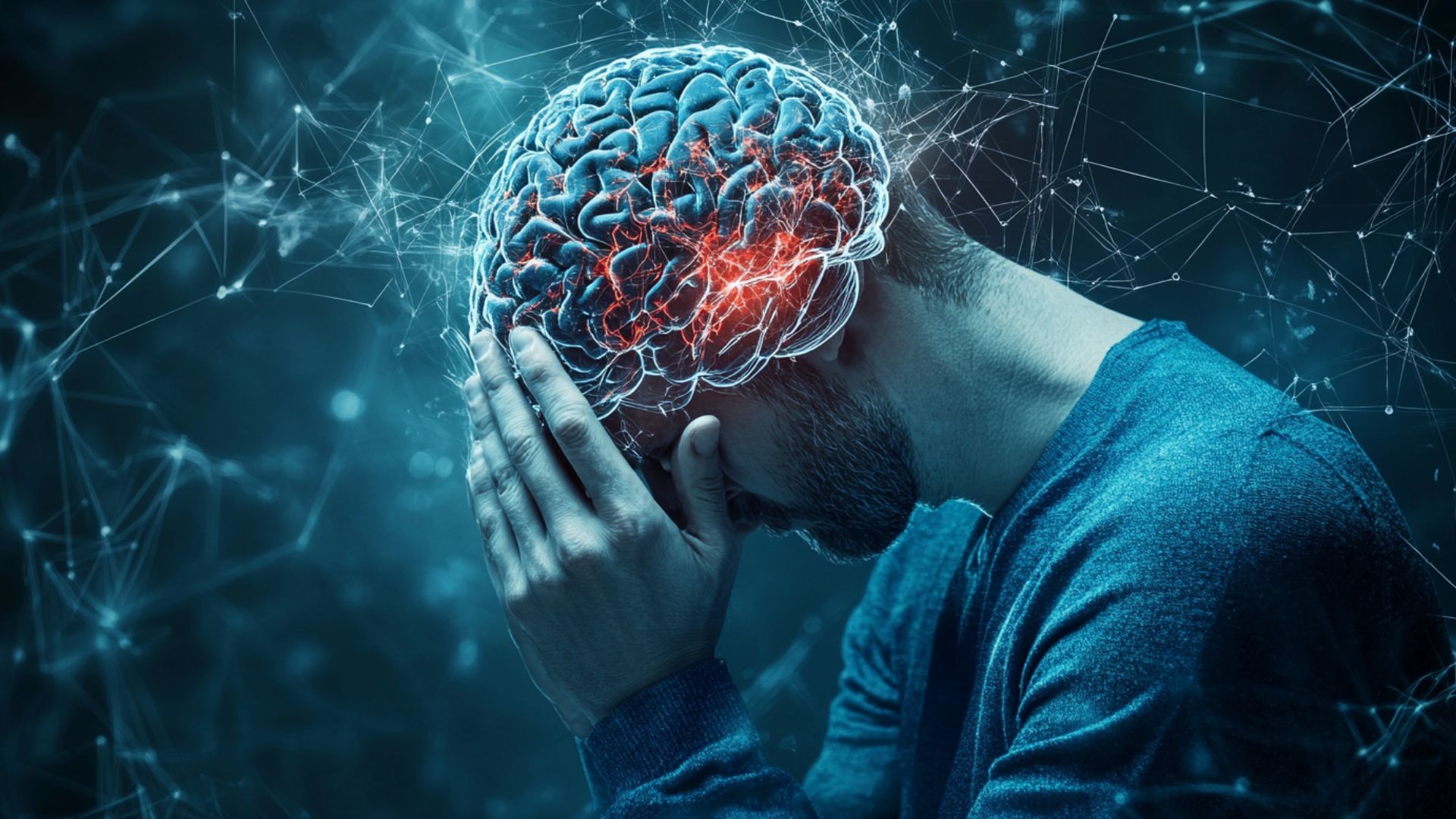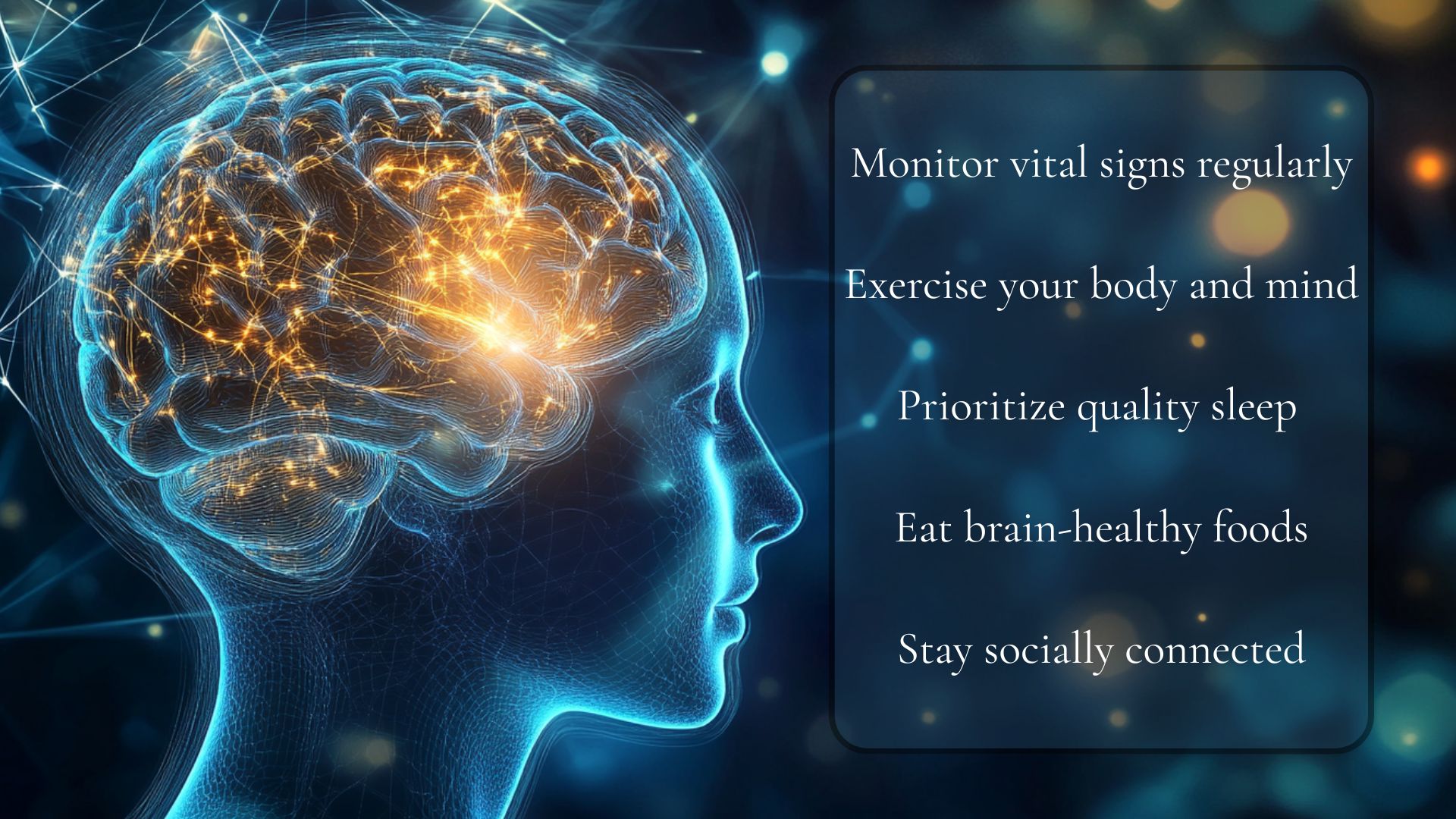Your body speaks to you every day. Sometimes it whispers. Sometimes it shouts. But when it comes to your brain and nervous system, those messages can be confusing and scary. You might dismiss that persistent headache as stress. You could blame that tingling in your hands on sleeping wrong. But what if these signs are your body’s way of telling you something more serious is happening?
Recognizing neurological warning signs early can be the difference between effective treatment and permanent damage. Many people wait too long before seeking help, thinking their symptoms will just go away. But neurological conditions often progress silently, causing irreversible harm while you wait. Knowing when to see a neurologist isn’t just about peace of mind – it’s about protecting your future quality of life. Every day you delay could mean losing precious time for treatment that could change everything.
The Silent Threat: Early Warning Signs Your Nerves Are in Trouble
Your nervous system controls everything – from your heartbeat to your ability to remember your child’s name. When something goes wrong, the early signs of nerve damage can be subtle and easy to ignore. But these seemingly minor symptoms often signal serious problems brewing beneath the surface.
Watch for these common early signs of nerve damage that people often ignore:
- Tingling and numbness. That “pins and needles” feeling in your hands or feet isn’t normal, especially if it happens regularly. This could indicate peripheral neuropathy, diabetes complications, or vitamin deficiencies that damage your nerves.
- Muscle weakness. If you’re struggling to open jars, climb stairs, or lift objects you used to handle easily, your motor nerves might be compromised. Progressive muscle weakness can signal conditions like ALS, muscular dystrophy, or spinal cord problems.
- Balance problems. Neurological red flags include sudden changes in coordination. If you’re bumping into walls, dropping things frequently, or feeling unsteady on your feet, your cerebellum or inner ear might be affected. These issues often indicate serious conditions like stroke, brain tumors, or vestibular disorders.
- Memory difficulties. Forgetting important appointments, getting lost in familiar places, or struggling to follow conversations could indicate early dementia, Alzheimer’s disease, or other cognitive disorders. Don’t dismiss these as “normal aging” – they deserve immediate attention.
Brain Health Symptoms That Demand Your Attention
Your brain works 24/7, managing countless functions you never think about. When brain health symptoms appear, they’re often your first clue that something needs immediate attention. These symptoms can be frightening, but recognizing them early gives you the best chance for effective treatment.
Persistent headaches that change in pattern, intensity, or frequency should concern you. If your usual headaches suddenly become severe, or if you develop headaches when you never had them before, this could signal increased brain pressure, tumors, or vascular problems. Headaches accompanied by nausea, vision changes, or confusion are especially worrying.
Vision problems that develop suddenly need immediate evaluation. Double vision, blind spots, or visual field cuts often indicate stroke, brain tumors, or optic nerve problems. These symptoms of neurological issues can progress rapidly, potentially causing permanent vision loss if not treated quickly.
Speech difficulties like slurred words, finding the wrong words, or understanding problems are serious warning signs. These symptoms might indicate stroke, brain tumors, or degenerative conditions affecting language centers in your brain. Even temporary speech problems require urgent medical attention.
Seizures at any age demand immediate neurological evaluation. They’re not just dramatic convulsions – seizures can appear as staring spells, confusion episodes, or strange sensations. Any unexplained loss of consciousness or awareness could be a seizure requiring treatment.
Hidden Brain Disorders: The Signs You’re Probably Missing
Many signs of brain disorders hide in plain sight, masquerading as stress, fatigue, or aging. These subtle symptoms often go unnoticed until conditions become advanced and harder to treat. Learning to recognize these hidden warning signs could save your life.
Personality changes that seem to come from nowhere might indicate frontal lobe problems, early dementia, or psychiatric conditions with neurological components. If family members notice you’re more irritable, impulsive, or emotionally unstable than usual, take their concerns seriously.
Sleep disturbances beyond occasional insomnia can signal serious brain problems. Excessive daytime sleepiness, sleep paralysis, or acting out dreams might indicate narcolepsy, sleep apnea, or REM sleep behavior disorder. These conditions affect brain function and increase your risk of accidents and cognitive decline.
Cognitive changes like difficulty concentrating, problem-solving troubles, or processing information slowly often indicate underlying neurological red flags. These symptoms might seem like stress or depression, but they could signal conditions like multiple sclerosis, brain infections, or early-stage dementia.
Movement disorders that develop gradually often go unnoticed until they become severe. Tremors, stiffness, or changes in your walking pattern might indicate Parkinson’s disease, essential tremor, or other movement disorders. Early treatment can significantly improve your quality of life and slow disease progression.
Taking Action: When and How to See a Neurologist
Deciding when to see a neurologist can feel overwhelming, but certain situations require immediate action. Don’t wait for symptoms to worsen or hope they’ll disappear on their own. Your brain and nervous system deserve the same urgent attention you’d give a broken bone or chest pain.
You need immediate neurological consultation in these situations:
- Emergency symptoms. Sudden severe headaches, vision loss, speech problems, or muscle weakness could indicate stroke, brain hemorrhage, or other life-threatening conditions. Time is critical in neurological emergencies – every minute counts.
- Progressive symptoms. Gradually increasing memory problems, worsening balance issues, or progressive muscle weakness often indicate degenerative conditions that respond better to early treatment. Don’t wait until symptoms become disabling.
- Persistent unexplained symptoms. Any neurological symptom lasting more than a few days without clear cause deserves professional evaluation, even if it seems minor.
When choosing a neurologist, look for specialists with experience treating your specific symptoms. Some neurologists focus on movement disorders, others on epilepsy, and some specialize in memory problems. Ask your primary care doctor for referrals, and don’t hesitate to seek second opinions for complex conditions.
Prepare for your consultation by documenting symptoms, timing, and triggers. Keep a symptom diary noting when problems occur, what makes them better or worse, and how they affect your daily life. Bring all medications, supplements, and previous test results to your appointment.
Protecting Your Brain: Prevention and Early Detection Strategies
Understanding neurological warning signs empowers you to take control of your brain health before problems become serious. Prevention and early detection are your best tools for maintaining cognitive function and preventing irreversible damage.
Take these essential steps to protect your brain health:
- Monitor vital signs regularly. Check blood pressure, cholesterol, and blood sugar levels, as these conditions significantly impact brain function. Diabetes, hypertension, and high cholesterol can cause stroke, cognitive decline, and nerve damage if left untreated.
- Exercise your body and mind. Regular physical activity increases blood flow to the brain and promotes new neural connections. Mental stimulation through learning new skills, solving puzzles, and reading creates cognitive reserves that protect against brain disorders.
- Eat brain-healthy foods. A Mediterranean-style diet rich in omega-3 fatty acids, antioxidants, and anti-inflammatory compounds supports brain health symptoms and may prevent cognitive decline.
- Prioritize quality sleep. Poor sleep contributes to memory problems, increases stroke risk, and may accelerate neurodegenerative diseases. Aim for 7-9 hours of quality sleep nightly and address sleep disorders promptly.
- Stay socially connected. Maintaining relationships and avoiding isolation reduces your risk of cognitive decline and depression. Chronic stress and loneliness negatively impact brain health.
Expert Neurological Care at LoneStar Neurology
At LoneStar Neurology, we understand how frightening neurological symptoms can be. Our team of board-certified neurologists combines decades of experience with cutting-edge diagnostic technology to provide comprehensive care for all neurological conditions. We don’t just treat symptoms – we find answers and create personalized treatment plans that address your unique needs.
Our state-of-the-art facility offers advanced diagnostic testing including MRI, CT scans, EEG, EMG, and neuropsychological assessments. We specialize in treating stroke, epilepsy, movement disorders, memory problems, headaches, and peripheral neuropathy. Our multidisciplinary approach includes neurologists, nurse practitioners, and support staff who work together to ensure you receive the best possible care.
We believe in treating the whole person, not just the diagnosis. Our compassionate team takes time to listen to your concerns, explain your condition in understandable terms, and involve you in treatment decisions. We’re here to guide you through every step of your neurological journey, from initial consultation through long-term management.
Don’t let fear or uncertainty delay the care you need. If you’re experiencing any neurological symptoms, contact LoneStar Neurology today to schedule your consultation. Your brain health is too important to ignore, and early intervention can make all the difference in your outcome and quality of life.













I've given up... the stress her office staff has put me through is just not worth it. You can do so much better, please clean house, either change out your office staff, or find a way for them to be more efficient please. You have to do something. This is not how you want to run your practice. It leaves a very bad impression on your business.
Please, leave your review
Write a comment: